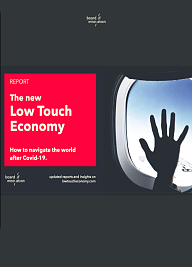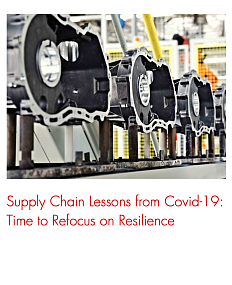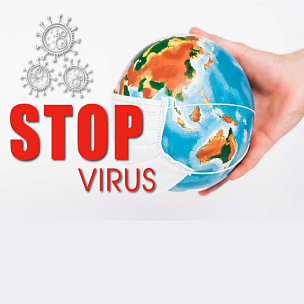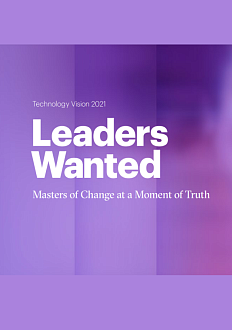The report prepared by the consulting company Board of Innovation reflects key changes in the global economy, entrepreneurship, and consumer behavior caused by the COVID-19 pandemic. The publication cites examples of industry sectors that have been most affected by the pandemic, and offers recommendations on how to attain business growth in the current conditions.
The Roscongress Foundation presents the salient points of the publication accompanied by fragments of broadcasts of relevant panel discussions from the business programme of international events held by the Roscongress Foundation.
The COVID-19 pandemic is having a huge impact on traditional behaviors and lifestyles.
During a pandemic, traditional lifestyles are rapidly changing as new habits and routines emerge. Today, restrictions on mobility and gatherings, the need to protect vulnerable groups, and strict hygiene requirements are having an increasingly powerful effect.
Other phenomena that are challenging traditional business and lifestyle norms include remote working, mixed work/life balance, access to e-commerce & logistics, and e-health services.
The global community is faced with unprecedented shocks, such as mass unemployment, mass bankruptcies, border closures, new laws fuelled by existing xenophobia and populism, and temporary lockdown currently applied to 1/3rd of the global population.
The pandemic has triggered a number of economic and societal transformations, including shifts in work processes, consumer behavior, interpersonal communication, and psychology. In the current conditions, many people will likely experience anxiousness, loneliness and depression. Trust in hygiene of people and products will be damaged. Also, people will have to balance their work-life needs within the confines of their homes. Extended travel restrictions, even within a country, rising tension and conflicts at all levels, and limited contact with older generations will cause shifts in interpersonal communication patterns.
Its worth noting that in the current conditions there is a huge risk of a global rise in unemployment on an unprecedented scale. Currently, work processes are mostly optimized by transfering the staff to remote working. Due to the current course on restricting personal contacts, services for delivery of all kinds of goods are growing particularly popular.
Industries are affected by the pandemic and its consequences to a varying extent.
Business environment at the moment is characterized by a general trend towards lower business activity which entails a risk of bankruptcies. This may lead to a rise in unemployment and a reduction in demand for goods and services.
Still, the extent to which industries are affected by the pandemic varies. Tourism and sports are the sectors which have suffered the most. This is explained by the high degree of interaction between people in places of mass gatherings which has now been reduced to almost zero.
The sectors which have suffered the smallest direct losses during the COVID-19 pandemic are the pharmaceutical industry and non-foods retail. This is explained by the increased demand for medicines and other goods that people use to counter the pandemic.
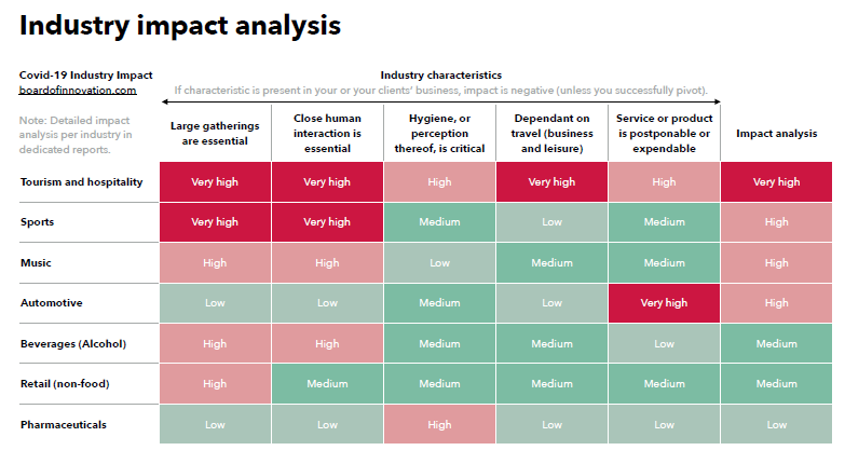
Recovery periods and operating capability of businesses will vary depending on industry specifics and external factors.
Due to the high uncertainty in the economy, a critical step for businesses is to decide on a corporate development strategy which would be based on the specifics of the company and the scale of the damage suffered by the company and the industry. Recovery periods and operating capability of businesses will vary depending on industry specifics and external factors, such as severity and duration of economic impact, pandemic control measures, and availability of economic stimuli.
For example, in the case of the tourism industry which was hardest hit by the negative consequences of the pandemic, if the economic impact of the pandemic lasts for 6 months, the sector will have to mothball large part of the business. After that, provided the pandemic is contained and businesses receive an economic stimulus, the industry must prepare for restart (V-curve rebound). If the impact of the pandemic continues for 18 months, with social distancing and other economic and epidemiological measures prolonged, tourism businesses will have to pivot through organic innovation and inorganic growth, or divest (U-curve recovery). Lastly, in case of a failed pandemic control, with the economic impact of the pandemic lasting for as long as 36 months, many tourism companies will be forced to abandon the market (L-curve recovery).
At the same time, e-commerce which currently enjoys revenue growth through demand surge must boost supply to keep up with rising demand and push for growth and market share.
For more information about policy responses to the coronavirus outbreak and possible ways to stabilize the economy during the pandemic, please see the COVID-19 and StayHomeEconomy special sections of the Roscongress information and analytical system.


